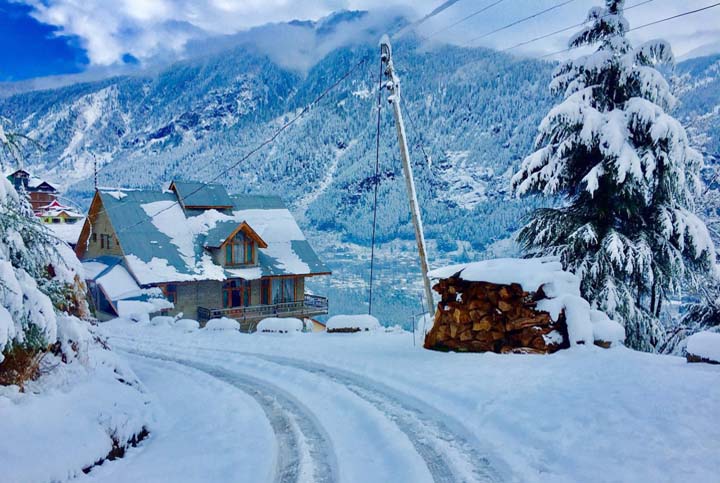Things You Should Know Before Traveling to India During COVID-19
Posted On September 20th, 2021

The situation of COVID-19 is rapidly changing in India and around the world. Despite a relief in the number of cases recorded each day after the second wave, health officials advise practicing caution and staying at home. We cannot be completely off the hook until every single citizen of India is fully vaccinated. So, if you are planning to travel to India during COVID-19, here are some things that you should keep in mind.
Current Corona Situation in India
We have recently been a global epicenter of a deadly and devastating second wave of COVID-19. The surge of the pandemic during the second wave has nearly collapsed the healthcare system in the country. As a result, the borders were precautionarily closed banning all scheduled national and international travel to and from the country.
Not only travel was restricted but markets and shops were also closed for a while. Many states implemented a temporary lockdown. Gradually, the outbreak has begun to abate in major cities, spreading to rural areas in the country. According to researchers, about 800 identified variants of the virus are located in different states in India. In addition to that, there is a constant risk of exposure to other prevalent infections, such as black fungus identified in COVID patients.
A new Delta variant is showing an exponential rise in certain cities across the globe. It is assumed to be 60% more transmissible in comparison to the Alpha variant. Vaccination is in full swing in the country. Now, India is gradually unlocking as bans are being lifted from different places in India. Tourists and travelers are allowed to visit different destinations in India only under strict criteria.
Current Flight Bans in India
At present, international travel is restricted to and from several destinations, including Australia, China, Canada, Germany, Saudi Arabia, Italy, New Zealand, the United States, the UAE, and the United Kingdom. All these countries are on the red list of India for travel. Only fully vaccinated travelers are permitted to travel to India under an emergency from these nations. Further, travelers are advised to practice hygiene, follow social distancing, wear a mask, avoid crowds, and wash hands frequently or use a hand sanitizer.
What to Expect During Traveling to India?
India has a versatile landscape with distinct cultures, different religions, and astonishing architecture. Most first-timers in India prefer to explore these dimensions via combined tour packages, such as the golden triangle tour that includes a visit to Delhi, Jaipur, and Agra. However, visitors can also explore individual cities like Mumbai, Kerala, and Goa.
Currently, international tourists are not permitted into most Indian cities. Only Indian nationals or Indian residents from certain countries are granted entry to these states. Regular international flights stay suspended until notified. All arrivals are thoroughly screened and anyone showing symptoms is immediately admitted to a medical facility. Further, entry to different states may require travelers to show a negative report for the COVID-19 test done not earlier than 72 hours.
As domestic travel resumes, religious events and weddings are also allowed. However, different states in India may impose statewide regulations such as an evening curfew and mandatory test reports. Therefore, it is essential to follow state advisory for travel before planning a tour to these states. Mass gatherings are not permitted, and nonessential shops are still closed in some states. Various annual celebrations which involve mass gatherings in India have been either postponed or canceled for the year.
Revised Travel Guidelines for International Arrivals
If you are planning a trip to India, you should follow these mandatory guidelines:
- You need to submit a self-declaration form before 72 hours of your scheduled travel.
- You should undergo mandatory 14-days quarantine that includes 7-days in paid institutions and 7-days of home quarantine.
- It is essential to self-monitor your health during quarantine.
- You should submit a negative RT-PCR report on arrival for the test conducted within 96 hours before starting your journey.
- All passengers must have Arogya Setu App on their phones.
- Asymptomatic passengers can board the flight after the thermal screening.
- The same protocols apply to travelers crossing land borders.
- Passengers must wear a mask and follow environmental, respiratory, and hand hygiene.
- You should be fully vaccinated before you plan a travel to India.
Best Way to Explore India
Travel experts believe that the safest way to explore different states in India under the current CORONA situation is by self-driven vehicles or private rental cars and vans. Once you arrive in India, you can approach a local rental service provider to hire a rental ride or browse through their online portals to find a suitable ride under budget.
Hiring a ride provides you better control over your journey. You can ensure better hygiene as you are not traveling with fellow passengers. You can avoid too many halts, which is not otherwise possible in public transport. Rental rides are less tiresome for short-haul drives. You can book a self-drive rental sedan for a short, private trip or hire a chauffeured luxury rental ride to explore a destination in privacy with your family and friends.
FAQs
Ans- Many people prefer staycation over long holiday plans. Further, short-distance tours are preferred over long journeys. Sustainable hotels are also supporting the staycation trend in India.
Ans- People are choosing a more fitness-oriented lifestyle after the pandemic. As a result, hotels that offer healthier options like farm-to-table and organic farm produce are preferred over cheap motels and regular lodges. Further, hotel brands have shifted to delivering sustainable hospitality, which involves more organic and vegan choices over artificial ones.
Related Posts

Manali Tourist Attractions and the Best Tempo Traveller Tours
Posted on October 22nd, 2022
Read More →© All Copyright 2024 Reserved tempotravellerhire.in
Leave a Comment :